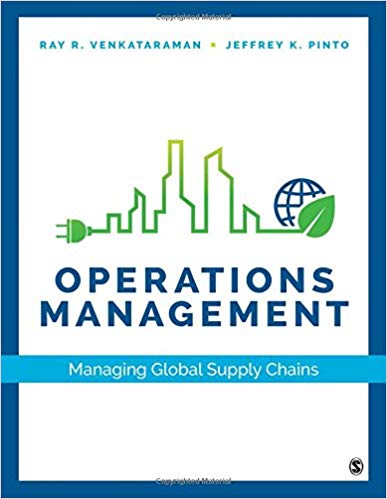Question
CASE STUDY Read the following excerpt and answer the questions that follow: Please note all questions are based on the below: The need to develop
CASE STUDY
Read the following excerpt and answer the questions that follow:
Please note all questions are based on the below:
The need to develop global managers has been widely recognised in literature (Holopainen and Bjorkman, 2005; Riusala, 2000 and Suutari, 1999). For example, 85 per cent of the Fortune 500 firms surveyed do not think that they have an adequate number of global leaders (Gregersen et all, 1998). International assignment is seen as one of the major tools and a powerful strategy for developing global leaders. In line with this, Derr (1993) states that expatriation is the top strategy for internationalising a young manager.
The foreign assignment is also a good management tool as the assignment is generally a higher position than the previous domestic one and this makes the assignment an important learning opportunity for the expatriate.
As organisations become globalised, there is an increasing challenge to use expatriates on international assignments to complete strategically critical tasks (Gregersen & Black 1992, Brewster 1998, Downes & Thomas 1999).
Multinational corporations (MNCs) use expatriates, not only for corporate control and expertise reasons in vital global markets, but also to facilitate entry into new markets or to develop international management competencies (Bird & Dunbar 1991, Boyacigiller 1991, Rosenzweig 1994, Shaffer, Harrison & Gilley 1999, Forster 2000).
While it is recognised that Human Resource Management (HRM) problems are more complex in the international environment, there is also increased evidence to suggest that the management of international human resources is increasingly being acknowledged as a major determinant of success or failure in international business (Tung 1984, Dowling 1999, Hiltrop 1999). For renowned and established MNCs, failure to be able to communicate and coordinate their activities in international business has the potential to plunge them into a crisis. The crises confronting MNCs includes failed assignments due to premature return of expatriates and the loss of their returned expatriates due to poor repatriation. These crises, due to poor expatriate management, can therefore threaten the organisations performance and capabilities in the international arena.
Expatriates may be losing their security blanket, but the challenges and potential longterm rewards of taking an international assignment are growing. Most global organisations see international experience as a prerequisite for promotion to the top jobs. Although this experience can be gained from working in crossborder teams and projects, expatriation remains the preferred way of creating a global mindset amongst managers.
However, there is a need for new skills and abilities amongst expatriates, and for far more careful planning and monitoring of assignments by organisational headquarters.
The literature on expatriate management tends to take one of two perspectives. First, much literature focuses on the individual expatriate's adjustment to working and living conditions abroad. Scholars have mapped such adjustment conceptually (e.g. Black et al 1991; Naumann, 1993) and have examined it empirically (e.g., Bjorkman and Schapp, 1994; Black and Porter, 1991).
The research generally concludes that adjustment is related to such variables as expatriate background (e.g., overseas experience, pre-transfer preparation), job (e.g., job nature, role perceptions) and personal factors such as family/partner adjustment (Black and Gregersen, 1991; Black and Mendenhall, 1991).
Representative studies that focus on the individual expatriate include the following: practical steps to succeed as an expatriate (e.g., Mendenhall & Oddou, 1988; Tu & Sullivan, 1994); repatriation (Napier & Peterson, 1991; Harvey, 16 1989); turnover (Birdseye & Hill, 1995); loyalty (Banai & Reisel, 1993); career management issues (Feldman & Thomas, 1992); and success (Black & Porter, 1991; Boyacigiller, 1990).
A second research stream has examined the types of international Human Resource Management (HRM) practices used by multinational firms in general (Tung, 1981, 1988; Ondrack, 1985) and in particular affiliates (e.g., Derr and Oddou, 1993). Such work addresses practices comprising of staffing, performance appraisal, training, compensation, and career management in MNCs (e.g., Harvey, 1989; Tung, 1981, 1982, 1984). Specific topics include selection criteria, cross-cultural training, expatriate pay practices, and the use of expatriates' knowledge upon return (Black and Gregersen, 991).
(Source: https://repository.up.ac.za/bitstream/handle/2263/24084/dissertation.pdf?sequence=1&i sAllowed=y)
QUESTION:
QUESTION ONE [25 marks] International assignment is seen as one of the major tools and a powerful strategy for developing global leaders. Evaluate the use and benefits of international assignments as a developmental tool.
QUESTION TWO [25 marks] While it is recognised that Human Resource Management (HRM) problems are more complex in the international environment Provide an overview of the various ways in which HRM problems are more complex internationally. Use examples to support your response.
QUESTION THREE [25 marks] Analyse the various factors that contribute to the individual expatriate's successful adjustment to working and living conditions abroad.
QUESTION FOUR [25 marks] Examine the international Human Resource Management practices used by multinational firms in the practice of staffing.
Step by Step Solution
There are 3 Steps involved in it
Step: 1

Get Instant Access to Expert-Tailored Solutions
See step-by-step solutions with expert insights and AI powered tools for academic success
Step: 2

Step: 3

Ace Your Homework with AI
Get the answers you need in no time with our AI-driven, step-by-step assistance
Get Started


